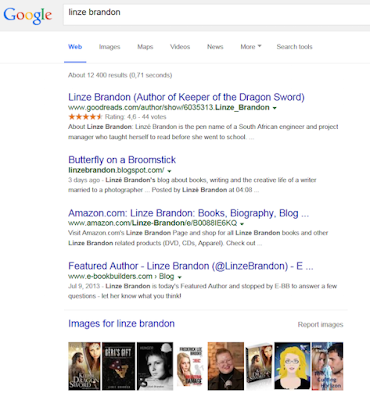As pantsers we tend to write our stories chronologically. To be able to do this, we sit down and read what we wrote the previous day and then simply continue where we left off. This is a simple process when you write every day and keep the story and characters alive in your head while you are writing.
But what if you did not write yesterday? Or the day before? What if you had to work overtime for two weeks and was simply too exhausted to look at your story? How far do you go back to pick up the plot?
The major plot would probably stare you in the face during the last scene, but now the finer details of the sub-plots are gone from your memory. Do you start reading from the beginning, or is there some way to help you keep track?
If you need to read many pages every time your writing is interrupted, you will be frustrated because you are reading instead of what you want to do...write.
But there is help and it's not so complicated as you might think:
- Use visual images to help you with the setting of your story. A Pinterest Board is an excellent tool to gather and pin landscapes or seascapes, or a city, or spaceship where your story is taking place. Even fantasy or imaginary graphics could help you. The world is filled with exceptional artists and pinning their work to your board could help you create the most interesting settings for your stories.
- If you cannot find what you are looking for, make a drawing. It doesn't have to be a masterpiece, it is only an aid to keep your story straight. I did a drawing of the village of Akan for my Nations of Peace series so that I could remember the lay of the land. Where the forest was, the houses, the school of Magic and Knowledge, etc.
- Another way is to sit down and describe the city, town, farm, asteroid or spaceship in as much detail as you can. The lights, the smells, the sounds, the odd green colour of the walls, etc. Describe each room. Or specific place (such as the barn) where your story could have a scene. You are not going to use so much detail in your story, but writing it all down helps to fix the setting(s) in your mind. By adding the details you can add depth to the story via the experiences your characters have in that environment.
- All the points described here are especially helpful when writing a series where the characters or stories have the same setting in common.
- It will also save you a lot of reading time to refresh your memory when you have not written for prolonged periods of time.
Keep all your notes, planning and preparation in the same place for quick referencing to save time. You can then focus on writing, instead of constantly backtracking to search for details about the setting.
See you tomorrow!
If you want to see what the other participants are blogging about, you can find their blogs here. Why not pop on over and leave a comment?












